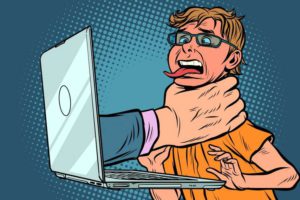AI Censorship: Here’s What Chatbots Won’t Tell You + More
AI Censorship: Here’s What Chatbots Won’t Tell You
Gizmodo reported:
When OpenAI released ChatGPT in 2022, it may not have realized it was setting a company spokesperson loose on the internet. ChatGPT’s billions of conversations reflected directly on the company, and OpenAI quickly threw up guardrails on what the chatbot could say. Since then, the biggest names in technology — Google, Meta, Microsoft, Elon Musk — all followed suit with their own AI tools, tuning chatbots’ responses to reflect their PR goals. But there’s been little comprehensive testing to compare how tech companies are putting their thumbs on the scale to control what chatbots tell us.

Gizmodo asked five of the leading AI chatbots a series of 20 controversial prompts and found patterns that suggest widespread censorship. There were some outliers, with Google’s Gemini refusing to answer half of the requests, and xAI’s Grok responding to a couple of prompts that every other chatbot refused. But across the board, we identified a swath of noticeably similar responses, suggesting that tech giants are copying each other’s answers to avoid drawing attention. The tech business may be quietly building an industry norm of sanitized responses that filter the information offered to users.
Google’s AI might be the most restricted for now, but that’s likely a temporary condition while the drama fades. In the meantime, the tests show a much more subtle form of information control. There are many areas where content moderation is an obvious necessity, such as child safety. But in most cases, the right answer is murky. The tests showed that many chatbots refuse to deliver information you can find with a simple Google search.
According to Micah Hill-Smith, founder of AI research firm Artificial Analysis, the “censorship” that Gizmodo identified comes from a late stage in training AI models called “reinforcement learning from human feedback” or RLHF. That process comes after the algorithms build their baseline responses, and involves a human stepping in to teach a model which responses are good, and which responses are bad.
Ways the Government Is Watching You and What You Can Do to Protect Your Privacy
Fox News reported:
Have you ever wondered whether or not the government is watching what you do online? It’s not an unreasonable question to ask. After all, whistleblowers like Julian Assange and Edward Snowden revealed that the government might be taking a closer look at us than we’d like to think about it.
However, we may not know to what extent the government has the capability to monitor us to some degree. The reasons why, who they’re looking at and what they’re looking at are another question.
While the U.S. government theoretically can watch most people’s activities online, they’re likely only paying attention to certain people. This comes after the U.S. Patriot Act, which was passed post-9/11. The act significantly expanded the powers of U.S. law enforcement and intelligence agencies to take a closer look into individuals suspected of terrorist activities or anything that would be considered a concern for national security.
We may never know for sure how much our government can watch or listen to what we do online. Even if you’re not up to anything suspicious, it’s perfectly normal not to want your government snooping on you. By using some of the strategies we mentioned — including a VPN — you can keep your online activity more private.
YouTube Says It Has a ‘Responsibility’ to Manipulate Algorithms Leading Up to the 2024 Election
Reclaim the Net reported:
“Responsibility” is a good word. It’s even better as an actual feature. But even just as a word, it’s a good one. It signals that reliable people/entities are behind some project or policy.
So, no wonder then, that the thoroughly disgraced Google/YouTube — as far as censorship and biased political approach —are trying to use the word “responsibility” as a narrative fig leaf to cover what the giant platform is actually up to — and has been, for a long while.
Enter, YouTube’s newest chief product officer, Johanna Voolich. What are the priorities here? It could be summed up as, four R’s and One C — namely, YouTube’s “remove, raise, reward, reduce” content approach — that’s as per a blog post published by YouTube itself.
And then, C would be speculative, for “censorship” — which is what these supposedly fair and “uplifting” actions in reality end up achieving.

Georgia Joins States Seeking Parental Permission Before Children Join Virtual Communication Networks
Associated Press reported:
Georgia could join other states in requiring children younger than 16 to have their parents’ explicit permission to create virtual communication accounts.
Lawmakers gave final approval to Senate Bill 351, which also would ban virtual communication networks use on school devices and internet services, require porn sites to verify users are 18 or over and mandate additional education by schools on virtual communication and internet use. The House passed the measure 120-45 and the Senate approved it 48-7. Republican Sen. Jason Anavitarte of Dallas called the bill “transformative”.
A number of other states including Louisiana, Arkansas, Texas and Utah passed laws last year requiring parental consent for children to use virtual communication networks. In Arkansas, a federal judge in August blocked enforcement of a law requiring parental consent for minors to create new virtual communication accounts.
YouTube Could Be Worth $400 Billion — That’s More Than Disney and Comcast Combined. We Should Be Paying More Attention.
Insider reported:
YouTube is the world’s largest video platform. It’s the world’s second-largest search engine. It plays a massive role in social culture.
And most of us don’t pay nearly enough attention to it. But Wall Street does: Analyst Michael Nathanson has a new note estimating that YouTube could be worth as much as $400 billion as a stand-alone company.
Reminder: Google bought YouTube for $1.65 billion nearly 20 years ago.
We could spend time here explaining Nathanson’s math and assumptions — he thinks that in 2023, YouTube generated operating profits of $5.5 billion on revenues of $45 billion; he also thinks its future growth will be spurred by subscription services like YouTube TV, as its advertising growth slows.
Congress Gives Research Into Kids and Virtual Communication Networks a Cash Infusion
The Washington Post reported:
Researchers scrutinizing how virtual communication networks impact children’s health recently got a key assist as lawmakers tucked fresh funding for the cause into their sprawling spending legislation.
Federal appropriators this year re-upped $15 million in funding for a program directing the National Institutes of Health and Department of Health and Human Services to lead studies examining technology’s impact on children’s development and psychic health. With Congress initially allocating $15 million last year, total investment is now up to $30 million.
The initiative, first proposed by Sen. Edward J. Markey (D-Mass.) and Rep. Jamie Raskin (D-Md.), is one of the federal government’s most significant attempts yet to map out how much digital platforms are contributing to issues like depression, anxiety and drug abuse among youth.
The 2023 appropriations helped NIH fund 26 grants looking into how tech impacts children, totaling $15.1 million, according to a fact sheet shared by Markey’s office.
yogaesoteric
April 6, 2024
